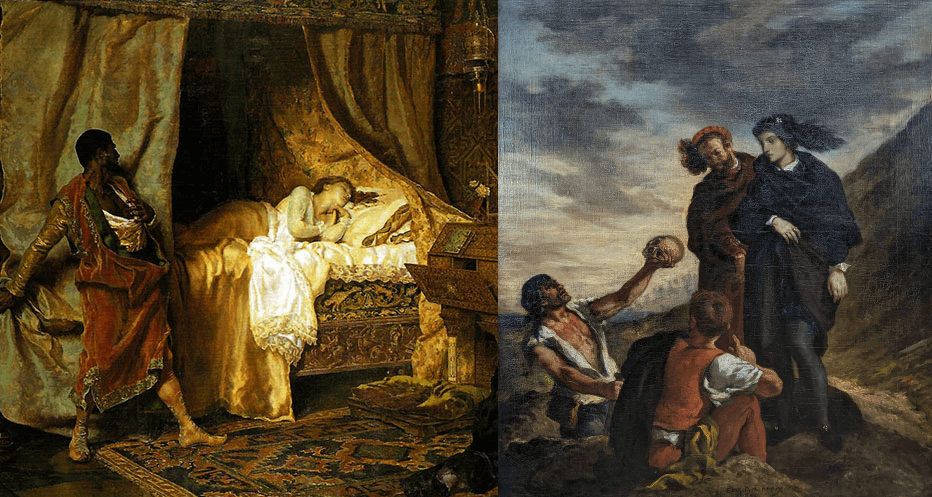What is Perversion?

Etymologically, perversion designates an overturning, a thorough subversion with respect to a proper telos, a natural course and end. To pervert an art is to turn it completely against its own way, to serve ends alien to it. Perversion entails, then, the reduction of what possesses an inherent good to a mere instrument. Perversion robs means of their own ends, producing, by the same token, a new good—a newly intended end (via a new way of intending)—as symbolic abstraction lending itself to serve as mask for an indefinite multitude of means, whereby the means themselves are conceived mechanistically as originally cut off from any good. Conceived independently of, or beyond good and evil, the means are now easy preys of a dreamed-of end embracing all means without any care for their respective worth. Hence the ancestral custom, so boldly vindicated by Isaiah, of speaking of perversion in terms of idolatry and prostitution.
What, originally, is a means? A movement or tendency with respect to an end. Without end, or what medieval Aristotelians would call causa finalis, there could be no means. Yet, in the modern world, or in the wake of the Machiavellian revolution, we are in the habit of abstracting ends out of means and means out of ends. Herein do we find the proper sense of the birth of modern value-free facts. Our facts or data are value-free in the respect that they have been bereft of any proper end, stripped of any original good. Our facts are “scientific,” possessing no inherent worth, lending themselves perfectly well to serve as building blocks for an end abstracted symbolically from any and all means. Hence the birth of modern “idealism”—an ism replacing a Platonic idea as “thing itself” (res ipsa), with a Kantian transcendental “as if”.
Modern idealism presupposes the Machiavellian abstraction of all ends into a symbolic form that promises to solve all conflict between means. Under a single, universal, “enlightened” end, all differences can be conveniently equalized or relativized. The new end is one that can free us from tribal bickering, from forgetting the forest for the tree, from remaining scholastically bogged down in mere-words instead of being “practical”. The new end has a pragmatic justification; it allows us to advance beyond prejudice, to move forward without being hampered by non-practical considerations—metaphysical considerations, or thoughts about ends that are neither clear, nor distinct, but dark and mysterious.
Given the early-modern characterization of means and ends—of means as value-free data and of ends as conceptual structures—the notion of perversion acquires a thoroughly new sense. To pervert is now to overturn the modern status of both means and ends. This overturning would entail the reverting to a classical understanding of ends as originally seated in means, not as primitive, childish, or rough conceptual structures that can motivate us by evolving into evermore abstract, pure, enlightened ideals, but as way that is at once truth and life (via et veritas et vita / ἡ ὁδὸς καὶ ἡ ἀλήθεια καὶ ἡ ζωή).[1] Far from being data lost in an evolutionary vortex, classical means are a poetic path in which truth and life are eminently present; a path on which we ourselves are found by truth and life. Far from being lost in “Evolution,” classical man is found providentially. “Both truth and life,” reads John 14:6: our means, including ourselves qua means, are at once the presence (ἡ ἀλήθεια) and blood of a divine end. Hence the admonition reading, “nobody relates to the Father if not through me” (nemo venit ad Patrem, nisi per me / οὐδεὶς ἔρχεται πρὸς τὸν Πατέρα εἰ μὴ δι’ ἐμοῦ): we all come and go to the Father through a means that is at once the living presence of the Father, namely the discourse or logos in which divine indetermination makes itself known authoritatively and thus as Father; known in the “living water” (ὕδωρ ζῶν) that is at once means and end.[2]
How is physical determination related to divine indetermination? John’s Platonic answer is, discourse as dialogue between the determined and the absolutely undetermined, whereby physical bodies are not mere machines or bundles of data, but “discoveries” produced by a speech (verbum) in which thought itself, or mind, is at work. Thanks to this discourse filled with its noetic source, we ourselves are not mere determinations of experience, or “objects of knowledge” cut off from divine or irreducible ends, but “fruits” of knowledge nourished directly by the Tree of Knowledge: stem-manifestations of living or dialectical knowledge, fruits in which that knowledge abides concretely, or in which it is really present, being divine nourishment in and as our daily bread.
What then are we, in a classical, Platonic sense? In the words of the Gospels, we are “children of God,” offspring of God via and in God’s Living Word. While we may fall off from the biblical Tree of Knowledge that is none other than dialogue between absolute intelligibility and physical determinations, the bond between our physical being and the divine is constantly revived in the cultivation of dialectical knowledge or dialogue (understood Platonically). In turning to dialogue we reactivate ourselves, regaining our connection to the biblical Tree of Knowledge, as fruits prior to their being severed from their élan vital, their breath of life. It is in dialogue properly or originally understood that the soul’s wings grow back (Plato, Phaedrus 249), as if lizards’ tails.
Yet the cultivation of our Platonic “wings” is anathema upon the rise of Machiavellian ends and the super-end they flood into, namely universal peace marked by the uniformity of all means under one new end. The bravery required to enter the new world peace, or the new order defined as peace itself, demands that all Platonic wings be clipped once and for all, or that the bond between knowledge and an original good be abrogated unconditionally. We must hold fast to the fruits of the Tree of Knowledge for the sake of establishing a New Tree by way of cancelling the Old one. If the old was rooted directly in divine indetermination, the new is rooted in absolute determination through technical buildup. The new order reminds us of a wall in the making, rather than a flower blooming eternally.
That flower and its blooming appear today as a perversion of our moral imperative to build a wall, a tower of knowledge marking the apotheosis of technology as new God—as new “way, truth and life”. Our new God is, of course, a virtual one, but that is precisely what renders it enticing. Only a virtual God can solve the problem that Machiavelli sought to solve upon calling for a synthesis of good and evil in which a new good would rise as an evil pretending to be good. In order to settle all conflict between good and evil, as between the good and the evil, man cannot intervene as the Old God, “from within,” but as a man, “from without”. From without, the New Man—even the Last one, to speak with Nietzsche—must blur white and black into each other, to obtain a perfectly gray world in which the only crime is the allegation of crime, or in which the only sin is its naming. To call things for what they are, as a spade a spade, is to offend the Regime in which reality is a pretention, or where the Outward is an end cut off from means and the Inward is a means cut off from ends. Now, if I look like Napoleon and feel like Napoleon, I must be Napoleon. Technology allows for this interplay of two modes of reified concreteness, inviting us to identify unqualified success with the overcoming of “old reality” by a new one in which being is defined by the marriage of technologically mediated feelings and appearances.
A “new normal” arises just as the dividing line between normality and unqualified goodness is effaced as nothing falling short of radical evil. The normal rises to the status of the good where the old biblical Tree of Knowledge of good and evil (τό ξύλον τοῦ γινώσκειν καλὸν καὶ πονηρόν—Genesis 2:17) is replaced by a New Science restricted to what we can make autonomously of any super-human guidance, as if the only good to be spoken of were the one we can make and market ourselves. To speak in biblical terms, the divine scientia boni et mali is now eclipsed by a new science of idols for which the old knowledge must be a perversion; and in the midst of the new world demanding that we bravely renounce the evil of divine knowledge and participation therein, a New Good crowns itself as king of all pretensions, proclaiming imposture as the root of being itself. “In the last days” (ἐν ἐσχάταις ἡμέραις),[3] we partake in being by participating in archetypical imposture until even participation itself is feigned; until the feigning spirals downward into an endless pit, where nothing is perverted because everything is.[4]
NOTES:
[1] John 14:6, where our proper end is our hidden integrity and gravitational center (author’s interpretation).
[2] See my “On the Nature of Context,” VoegelinView, May 7, 2022.
[3] 2 Timothy 3:1.
[4] Modern secularism as progressive effort to “immanentize the eschaton,” to echo Eric Voegelin’s terms of rebuke, defends itself, today, by projecting its habits onto its conservative detractors, seen as unduly politicizing an otherwise legitimate Biblical message (for a concise articulation of the progressive counter-argument, see https://newrepublic.com/article/41347/the-quotliberal-fascismquot-fallacy-aka-conservatives-immanentize-the-eschaton). Yet, the problem of immanent eschatology or “historical progressivism” is irreducible to the ideological appeal to the Bible, insofar as that appeal works hand in hand with an ideological rejection. Both share a progressive prejudice fueling the reframing of the eschaton in a “historical context”. To wit: the socialist/communist attempt to improve the world in the light of “the death of God” coincides de facto with the “neo-liberal” attempt to improve the world by reinventing God. This is what has happened in 20th century China, as well. The religious and philosophical civilizational pillars that Maoism had at first demonized are reinvented in neo-Maoist China as legitimate “opium of peoples” (das Opium des Volkes). The procedure is, however, at least as old as Niccolò Machiavelli: dismiss the Fathers (the Old Gods), if only through caricature, by way of replacing them with their mercenary detractors (the New Gods). This is the cardinal problem addressed by Giuseppe Tomasi di Lampedusa in his 1958 novel, Il Gattopardo (The Leopard). On the other hand, Leo Strauss came to admit the possibility of a return to/of the old Gods themselves. See Strauss’s 1965 “Preface to Spinoza’s Critique of Religion,” in Leo Strauss, Jewish Philosophy and the Crisis of Modernity. Kenneth Hart Green, ed. Albany, NY: State University of New York Press: 1997.




